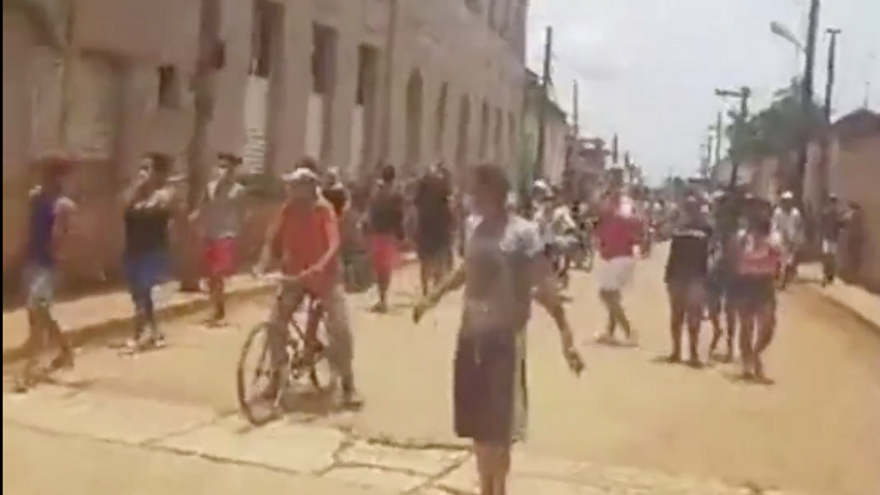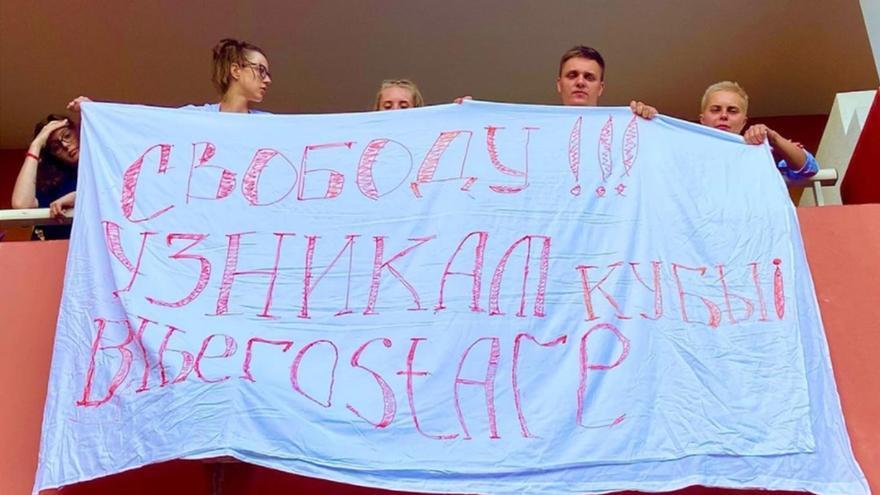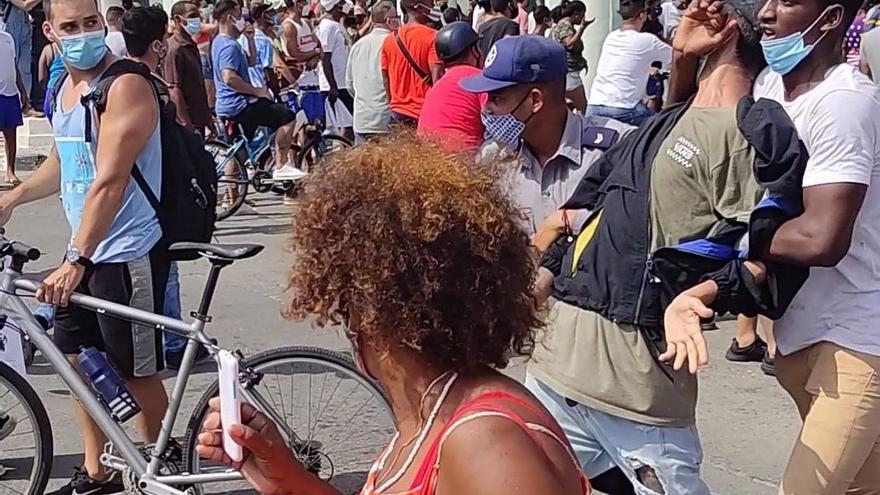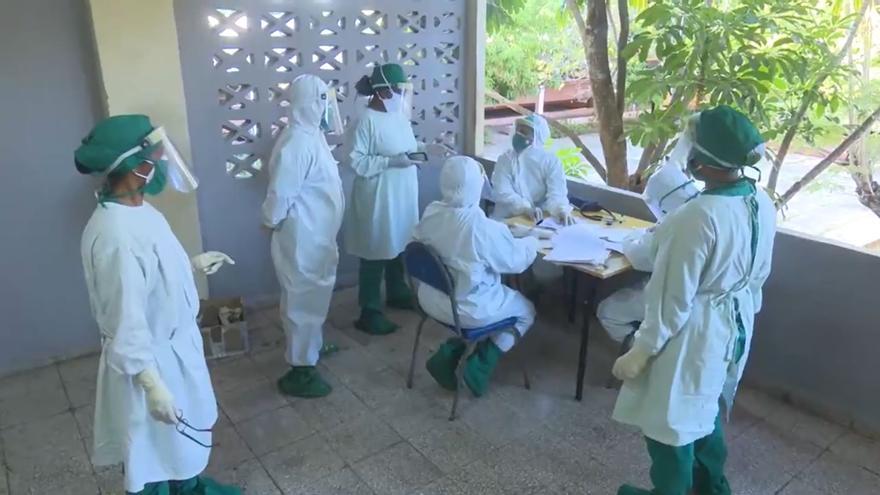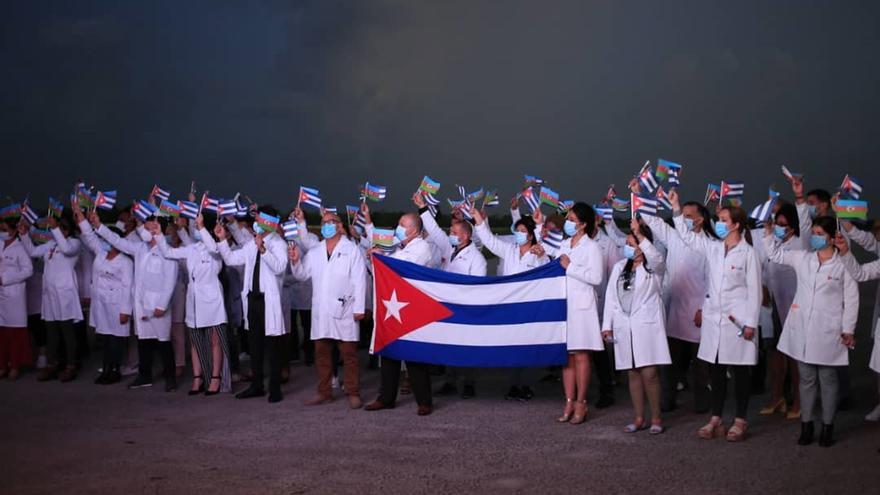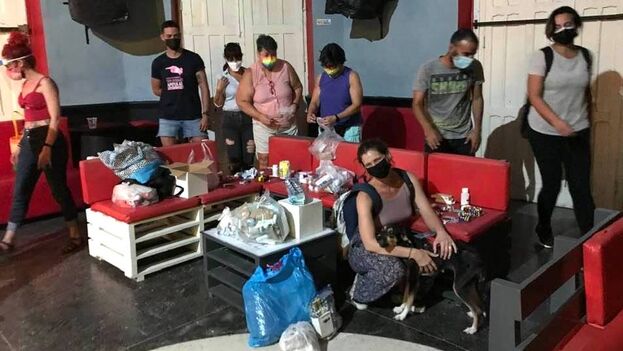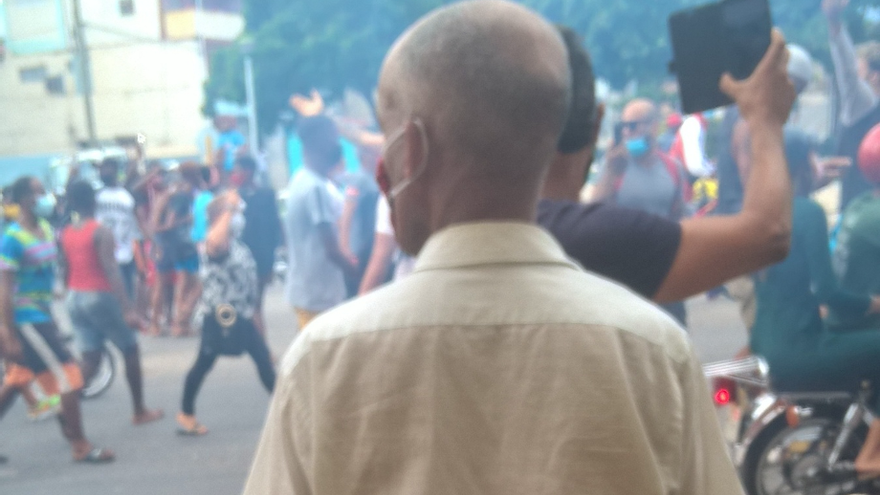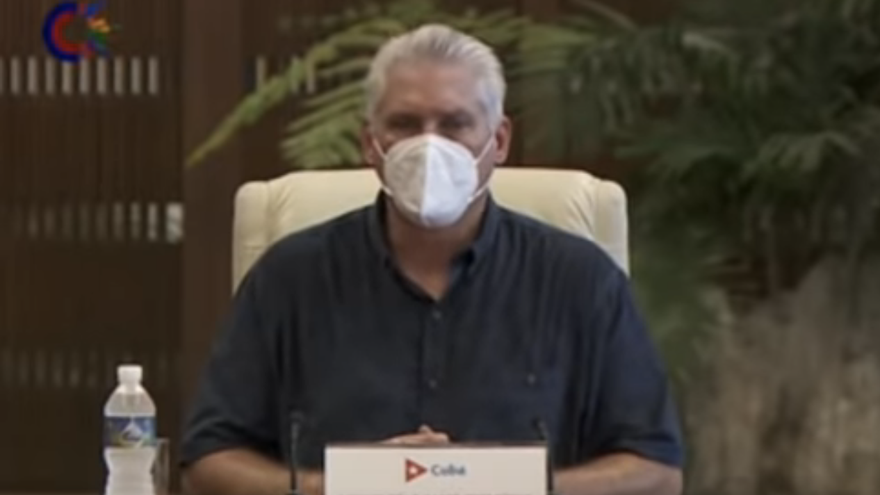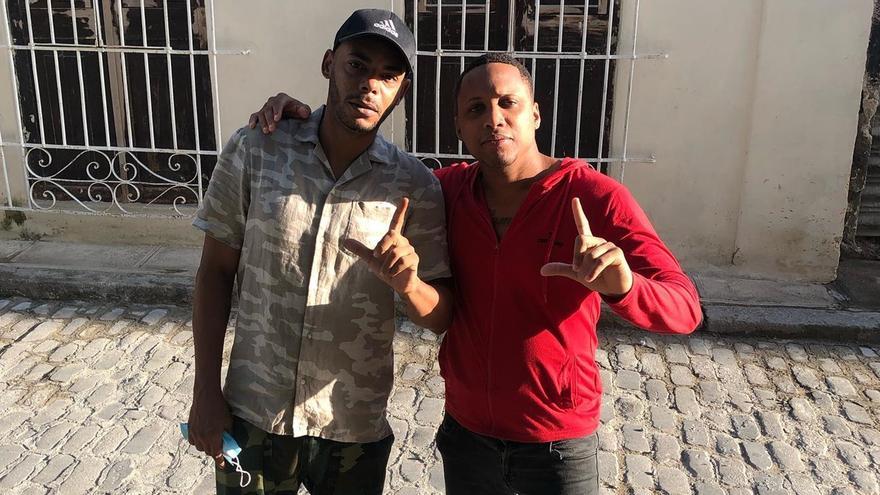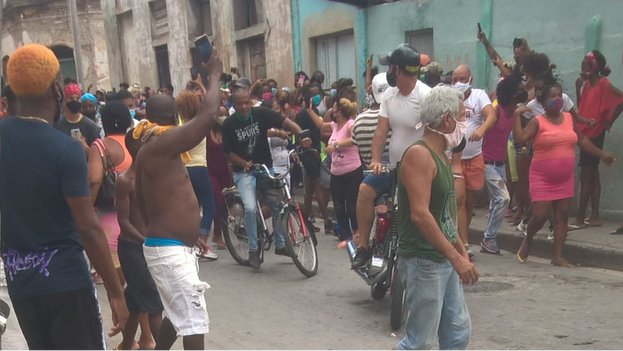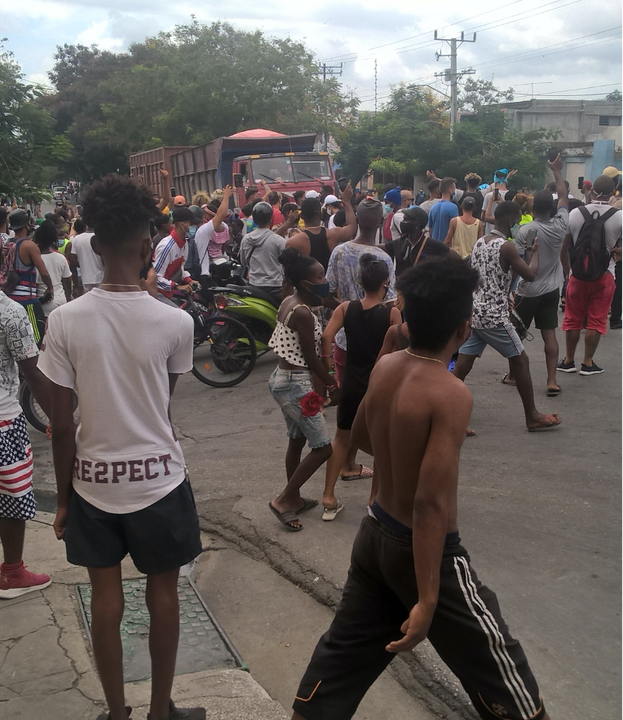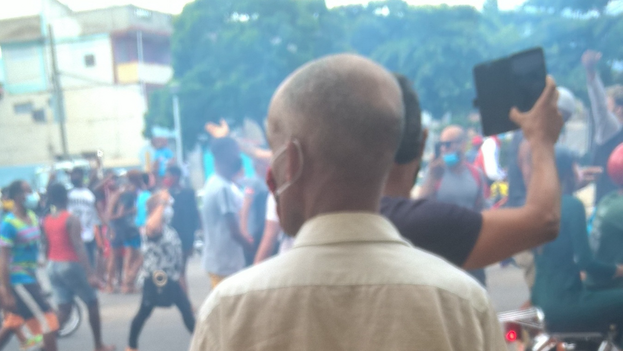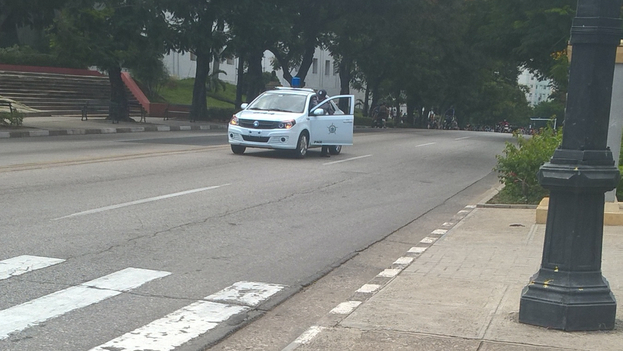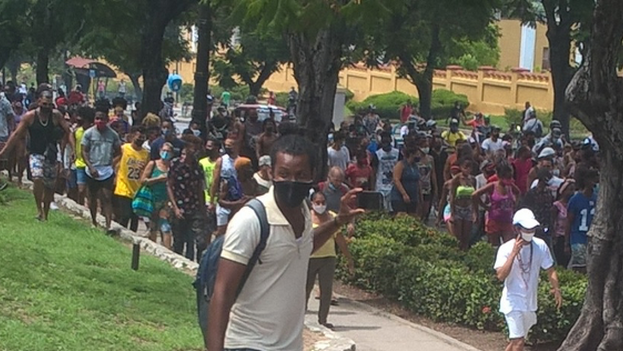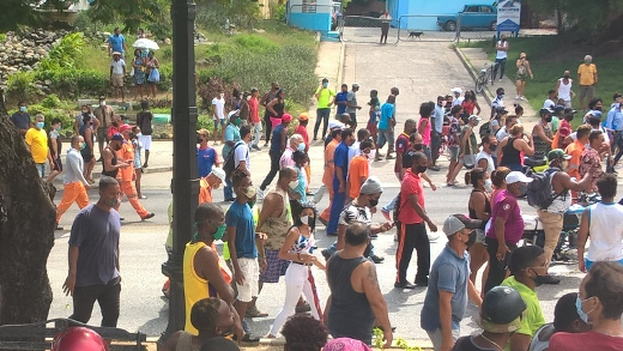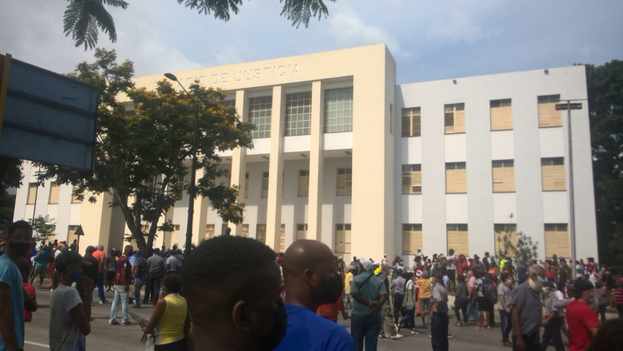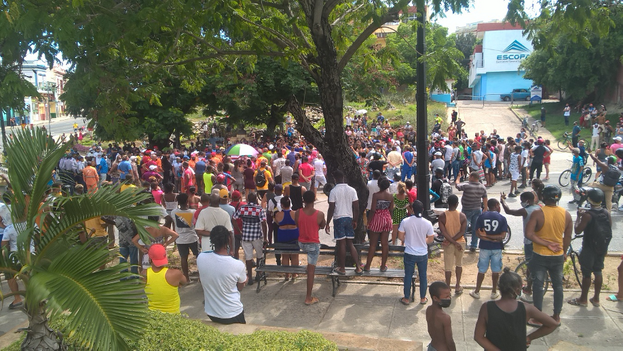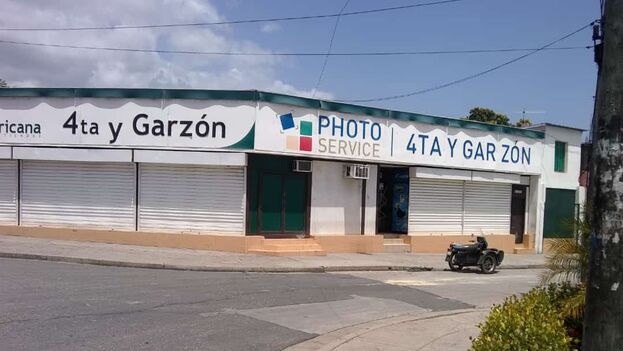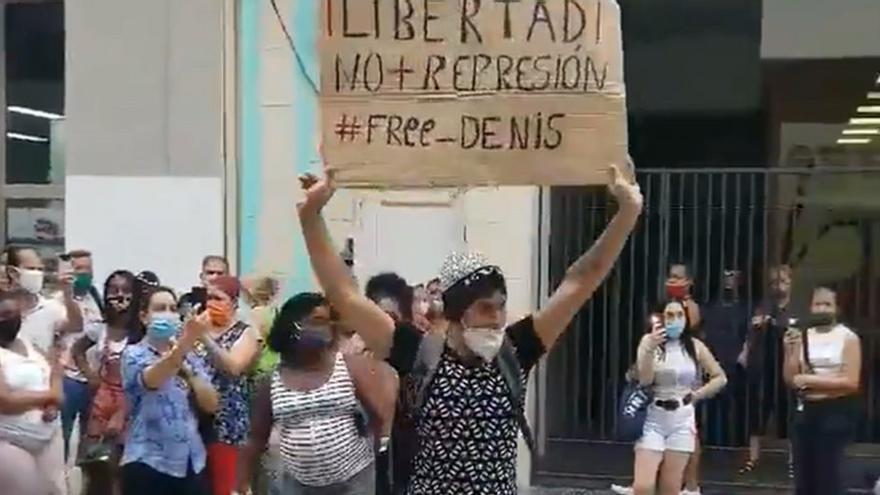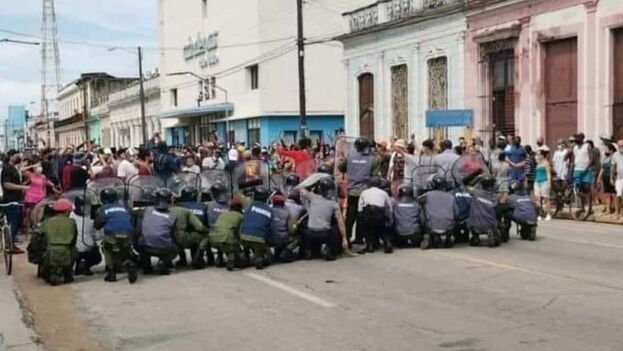
![]() 14ymedio, Natalia López Moya, Havana, July 10, 2021 — Norma would have turned 79 on July 8, but her life ended in mid-February, when her daughter Olga Nidia, who suffers from psychiatric problems, allegedly beat her to death in the Havana municipality of Cerro, according to accounts collected by 14ymedio.
14ymedio, Natalia López Moya, Havana, July 10, 2021 — Norma would have turned 79 on July 8, but her life ended in mid-February, when her daughter Olga Nidia, who suffers from psychiatric problems, allegedly beat her to death in the Havana municipality of Cerro, according to accounts collected by 14ymedio.
Cuba’s health crisis has claimed many direct and indirect victims. Olga is a woman in her 50s, dependent on various medications to control her mental illness. She needs everything from sedatives like amitriptyline to tranquilizers like alprazolam, but the supply of these drugs is increasingly unstable in the network of state pharmacies.
Olguita, as her neighbors call her, stopped getting the pills that kept her calm and allowed her to lead a normal life. Unable to continue with treatment, this psychiatric patient fell into several violent crises, ending with a fatal victim: her own mother.
The neighbors of Santovenia Alley, between Patria and Lindero, are outraged because five months after the tragic incident, no justice has arrived for the late Norma, nor medicines for Olguita. continue reading
“I’ve known her for more than 20 years and she’s always been a bit mentally unbalanced, with periodic blow-ups, which were controlled with her medications. It all started with the instability of supplies to the pharmacies. In a short time you could notice the change in her treatment of the neighbors, and you heard the frequent fights from inside her house with the mother and the husband, who was an alcoholic,” a neighbor told 14ymedio.
Norma León, Olguita’s mother, had worked the last ten years before her retirement as a cleaning assistant at the Central Havana Pediatric Hospital. Her coworkers remember her as a kind lady, who was always ready to help others. After retiring, various health conditions made her an invalid; for two years she remained at bed rest under her daughter’s care.
The last months of Norma’s life were terrible due to the mistreatment that she suffered during each of her daughter’s episodes. “She would beat her all kinds of ways, like with the hospital bed-pan, or she would shove her head against the refrigerator. Then when it was time to feed her, she would put the spoon in her mouth so brutally that that it broke her teeth. Many times I confronted the daughter and gave her advice, but all I got in return were insults and disrespect from her,” says another neighbor.
On many occasions, Norma was left alone in the house for several hours while her daughter went to the house of friends in El Vedado. “When Olguita returned and found that the mother had defecated or urinated, then came the blows, the screams, and the mistreatment. The day that Norma died, there was one of those episodes when Olguita was uncontrollable; apparently the mother’s tired body could take no more. I saw the daughter run out of the house to call a neighbor. I heard her say: ’Hurry, something’s wrong with my mother and she doesn’t answer.’ When the man left, we learned that she had died.”
When a doctor from the polyclinic appeared on the scene and observed Norma’s condition, he decided to call in a forensic expert. “That’s how the place was filled with policemen. Then, one of them told us that the death was caused by a heavy blow. But we were surprised to see that they didn’t even take Olguita into custody. She tried to have her mother’s body cremated, but the authorities didn’t allow it,” says another of the neighbors.
“Days later they summoned her to a police station in Old Havana, but she returned the same day. Then they summoned her five other times but nothing happened, she’s still in her house,” the woman added. “She has moments of calm, but most of the time she is complaining and talking to herself, especially after her husband, a cancer victim, also died about three months ago; alcohol took its toll. You can imagine how she is, and without medication, worse every day.”
Neighbors report that no social workers or representatives of the Federation of Cuban Women ever appeared at Norma’s home, despite the fact that the doctor from the medical office was aware of Olguita’s lack of medicines and her mistreatment of her mother.
The serious situation that the country is experiencing due to the lack of medicines did not begin with the pandemic, but it has worsened since March 2020. In recent months the list of drugs available in the island’s pharmacies has diminished and it is practically impossible to get antibiotics, analgesics, or any type of anti-anxiety medication. In addition, the supply cycle in these state agencies went from being every week to every two weeks, a scenario that ends up inflicting more anguish on patients who now have to stand in long lines, sometimes up to two days, to be able to buy what little does arrive.
At the end of last year, government officials warned that due to “financial pressures” the list of drugs in the “basic table” would be very “tight” during 2021. The shortage has affected hospitals throughout the country, and the network of international pharmacies, which, despite their high prices, many Cubans resort to in desperation.
Translated by Tomás A.
____________
COLLABORATE WITH OUR WORK: The 14ymedio team is committed to practicing serious journalism that reflects Cuba’s reality in all its depth. Thank you for joining us on this long journey. We invite you to continue supporting us by becoming a member of 14ymedio now. Together we can continue transforming journalism in Cuba.

